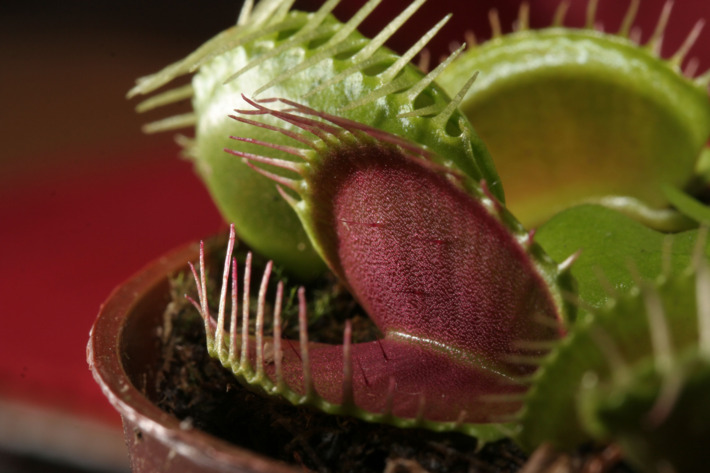Talk about weird science – – can plants learn? Or at the very least, can they remember?
– can plants learn? Or at the very least, can they remember?
Try a simple experiment. Place a plant in an enclosed box with two holes in the top to admit light. Open one hole for a specific period of time, long enough for the plant to grow toward it (plants grow toward light). Then close that hole and open the other hole for the same time period. Continue this pattern. Will the plant eventually be able to anticipate where its light source will be?
That’s not an original idea — a college professor suggested it. But I ran across an article that reminded me of his experiment. In a recent post at the Brain Blog, Dickinson College philosopher Chauncey Maher makes an argument that some plants do at least seem to be able to remember.
My college professor may have been on to something. The phenomenon called phototorsion — or how leaves orient themselves to the sun, tracking it through the day — is like memory. “[T]he memory-like thing, is that overnight, they turn back to where the sun will be in the morning! They seem to encode, store, and retrieve that information,” Maher writes.
There are other examples, like root growth. If a root goes downward and encounters an obstacle, it’ll go sideways. If it’s obstructed again, it’ll start downward again.
This may be difficult for scientists to accept because these behaviors don’t fit neatly into the models of memory that psychologists normally use, like episodic (little movie scenes you recall in your mind), procedural (learning motor skills), and semantic (recall of facts and things that haven’t been experienced firsthand). So if plants do remember, it’s more modest and belongs to what could be called “minimal cognition.”
But there’s a major roadblock to this idea: plants don’t have brains. However, some philosophers would argue otherwise: as far as we know, many animals do things without being consciously aware of what they’re doing. “What we learned from Darwin is that competence precedes comprehension,” Tufts professor Dan Dennett told Michael Pollan and The New Yorker in a 2013 feature on plant intelligence. “The idea that there is a bright line, with real comprehension and real minds on the far side of the chasm, and animals or plants on the other — that’s an archaic myth,” he said, and to think that memory means nothing in the absence of brains is “cerebrocentric.”
However you label it, it’s a new way to look at plants.
For the complete story, go to http://nymag.com/scienceofus/2017/02/do-plants-remember-things.html?. The photo came from that site.
